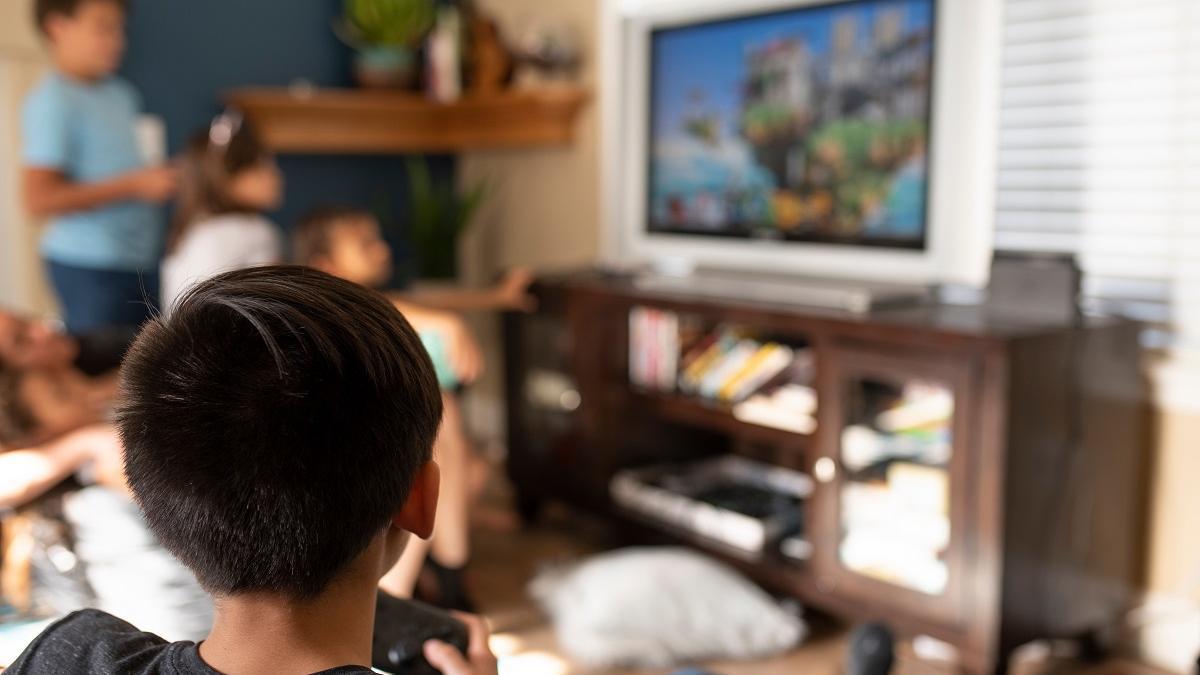Video games can seriously affect our ears and lead to hearing loss.

In the world devices Cell phones gaming consoles stand out. Entertainment that delights both children and adults. But, as with everything, overusing them can lead to health problems.
We are talking about:
- Passive lifestyle
- Addiction
- Anxiety
- Depression
- Visual problems
- And hearing problems.
So warns The study was published in the open access journal BMJ Public Health, and issued by the World Health Organization, which warns that:
- Video game players around the world may be at risk of permanent hearing loss and/or noise in ears (persistent ringing or ringing in the ears).
And the thing is that sound levels The researchers conclude that gamers are exposed to approaching or exceeding permitted safety limits, which affects hearing in 3 stages:
- Since we are born There are about 15,000 cells in the inner ear that allow us to hear, these are ciliated cells..
- The problem is that when sound too loudwherever it comes from, go through them, It takes a large number of these cells, which, unfortunately, do not regenerate.
- And so, little by little, we lose our hearing.
Until now, the focus has been on noise coming from headphones or music speakers, but little has considered the impact of video games on hearing loss, hence the importance of this study.

WHO warns that video game players are at risk of hearing loss. / Adobe Stock.
3 billion gamers are exposed to excessive sound
According to estimates collected during the study, In 2022, there will be approximately 3 billion video game players in the world.. Players who usually bet volume from his games too loud and for hours on end.
To understand the impact of these noise levels on gamers, the researchers collected data from 14 studies from 9 countries in North America, Europe, Southeast Asia, Asia and Australia, with a total of 53,833 participants.
Well then:
- Sound levels collected ranged from 43.2 decibels (dB) to 80–89 dB (the limit considered harmful to health).
- Regarding the timing of exposure to these noises, they were found to vary widely, from daily to once a month and from at least one hour per day to 3 hours per week.
In addition to the volume at which these video games are played, we must add the type of sound they make. In this regard, researchers note that this impulsive sounds lasting less than 1 second but reaching a maximum level of at least 15 dB above background sound.
- In fact, one study found that These impulsive sounds reach levels of up to 119 dB during play, with permissible exposure limits being around 100 dB for children and 130 to 140 dB for adults.

Video games can also cause tinnitus. / Stocking. Freepick.
More hours of play, more hearing problems
Given the high decibel levels that video games can reach, another factor that comes into the equation is the amount of time spent exposed to those levels.
The International Telecommunication Union (ITU), in collaboration with the World Health Organization, describes the balance between sound exposure time and intensity to determine acceptable levels and duration of exposure.
- According to this calculation, the permissible noise exposure level is 80 dB for 40 hours per week.
- This means that the permissible exposure time is halved for every 3 dB increase in noise level: at 83 dB this is 20 hours; at 86 dB – 10 hours; at 92 dB – 2.5 hours; and at 98 dB – 38 minutes.
This is for adults, because for children the permitted noise exposure level is 75 dB for 40 hours a week.
Thus, children can safely listen to 83 dB for about 6.5 hours, 86 dB for about 3.25 hours, 92 dB for 45 minutes, and 98 dB for just 12 minutes per week, the researchers explain.

We need to be aware of the dangers that video games pose to our hearing. / Adobe Stock.
You must control the volume of games
“Although the data presented in this review are limited, they suggest that Some playersespecially those who play frequently and have average or higher sound levels than those described in the articles included in this review are likely to exceed permissible sound exposure limits” and therefore, they put their hearing at riskresearchers note.
And we are talking not only about deafness, but also about develops tinnitus, more commonly known as tinnituspersistent ringing in the ears, which significantly impairs the quality of life of those who suffer from it.
Thus, the authors of this study suggest the need to “prioritize interventions such as education-focused initiatives and awareness of the potential risks of video gameswhich can promote safe listening among players.
